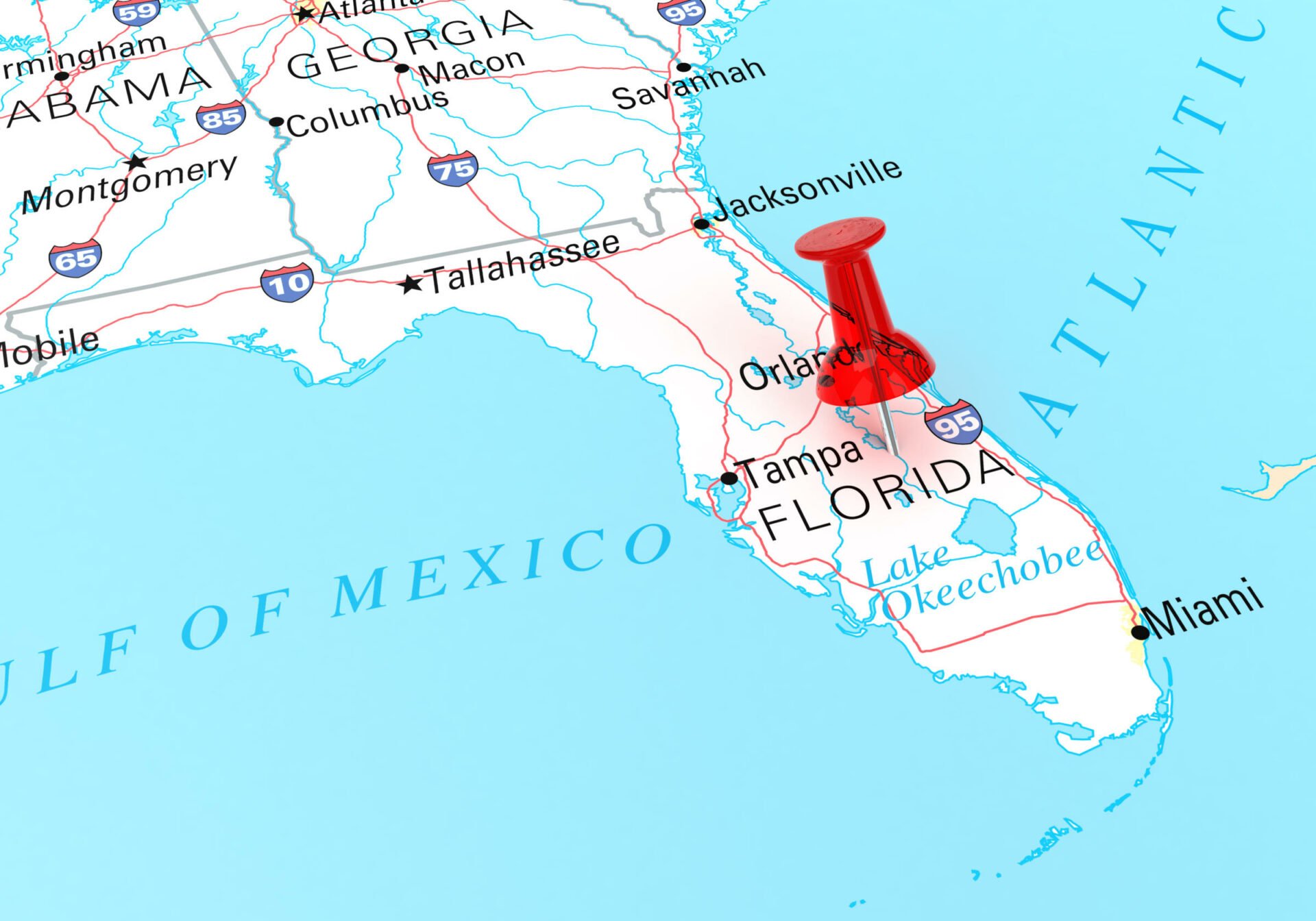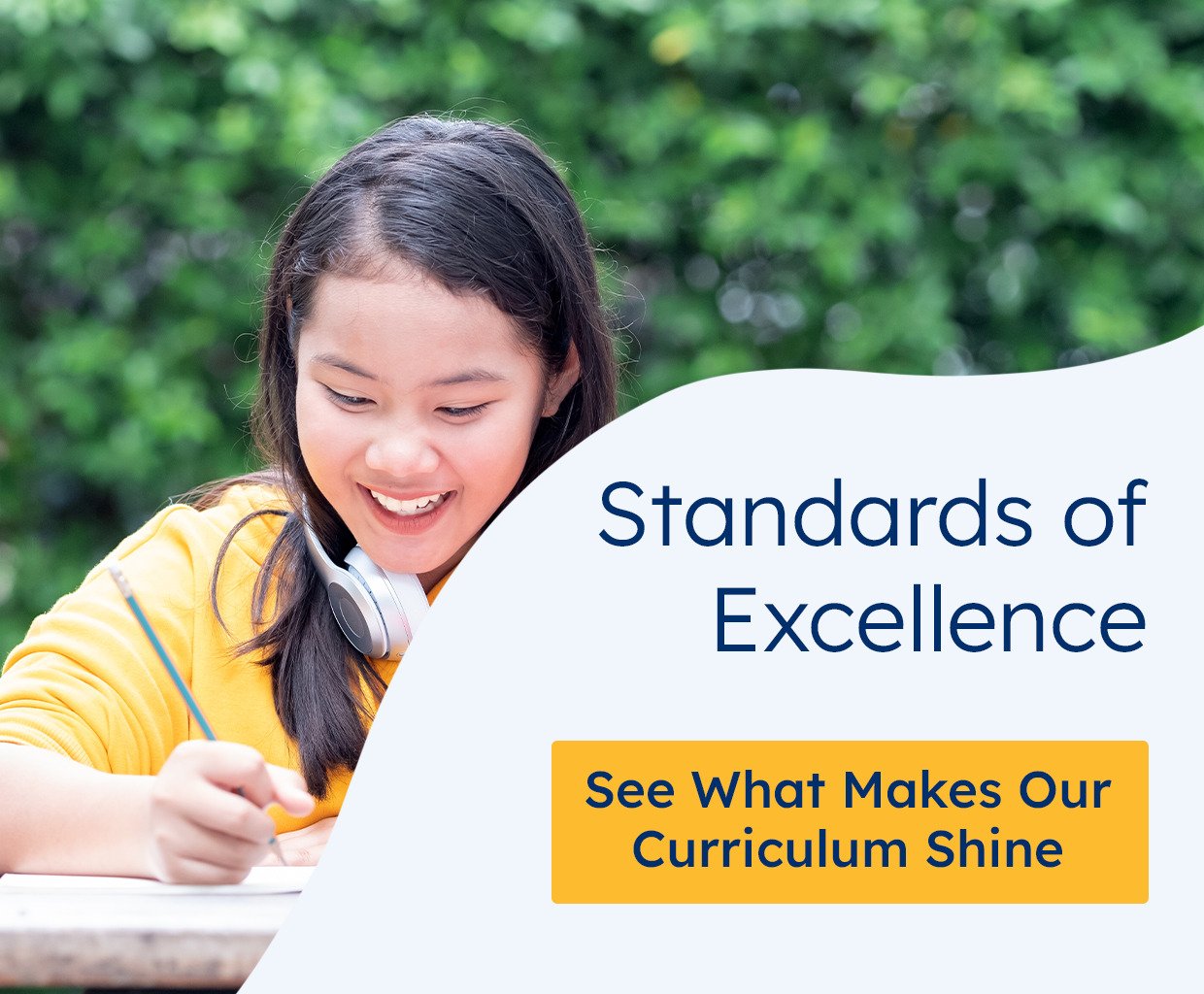Florida Homeschool Laws
Download Your Guide to Homeschooling in Florida Using State Funding
Florida Homeschooling Laws, Information, and Resources
If you’re living in Florida and are looking into homeschooling, you’re in the right place! This page provides the resources and information you need to determine whether homeschooling in Florida is right for you.
Speak to a Florida Homeschooling ExpertFL Homeschooling Laws at a Glance
- Options for Homeschooling: 3
- School Required for Ages: 6-16
- Notification Required: No, except for option 1
- Teacher Qualifications: None for parents
- State Mandated Subjects:No
- Assessment requirements: No, except for option 1
- Immunization requirements: No
Homeschooling Laws, Information, and Resources for Florida
Knowing the requirements for homeschooling in Florida is one key to successful homeschooling. Below is a summary of the FL homeschool laws. You can find additional information on Home School Legal Defense Association’s (HSLDA) website as well: Florida HSLDA Reference
- Homeschooling under the homeschool statute.
- Homeschooling under a private school “umbrella” program.
- Private tutor.
To homeschool your child under the Florida homeschool statute, parents must take a few steps.
- File a notice of intent to homeschool with your county’s superintendent within 30 days of beginning the homeschool program (you are not required to file this every year). This notice must include full name, address, and birthdate of your child. By law, the school district can’t require any further information unless your child participates in a public school program or service.
- Maintain a portfolio throughout the year. This should include a log of educational activities, a list of reading materials, samples of writings, worksheets, workbooks, or other materials used by your student. This portfolio should be kept for two years upon completion; a superintendent may request to view the portfolio, but only after 15 days’ written notice.
- Evaluate your student annually through one of these options:
- Have educational progress evaluated by a teacher holding a valid regular Florida teaching certificate—the evaluation must include review of a portfolio and discussion with the student.
- With any nationally normed student achievement test administered by a certified teacher.
- With a state student assessment test used by the school district and administered by a certified teacher, at a location and under testing conditions approved by the school district.
- Evaluation by a Florida licensed psychologist or school psychologist.
- Evaluation “with any other valid measurement tool as mutually agreed upon.”
- File a notice of termination within 30 days of your student completing their homeschool program or your family moving out of the county. A copy of your child’s final annual assessment must be submitted, along with the notice of termination when your child graduates from high school. If you begin homeschooling in a different county in Florida, a new notice of intent should be submitted.
Homeschooling under a private school “umbrella” program. This interesting option allows you to enroll your child in a registered private school that will oversee your homeschool program. This can be an appealing option because there’s no involvement with your local public school system, but it’s important to make sure the private school you choose meets all private school requirements.
Private tutor. You may choose to have your child tutored privately, in which case your child’s instructor is required to hold a valid Florida certificate to teach the subjects or grades in which instruction is given. The tutor must instruct your student the equivalent of 180 days and is required by the state and school district boards to keep records and make reports.
Whether you’re considering homeschooling for the first time or are already homeschooling in Florida and looking for more information, we’ll help answer some common questions.
Does Florida offer homeschool grants? Step Up For Students is an educational savings account program administered through the Florida Tax Credit Scholarship Program. The average scholarship ranges from $7,000 to $10,000 per school year. Learn more about homeschool grants in Florida.
What are the best homeschool programs in Florida? From accreditation to customization, these are the six criteria to look for to find the best homeschooling programs in Florida.
Here you’ll find websites for any questions you may have about education in the state of Florida.
- Florida Department of Education: https://www.fldoe.org/
- Florida Education Association: https://feaweb.org/
- Florida Education Guide: https://www.stateofflorida.com/education-guide/
- Florida School Boards Association: https://fsba.org/
- List of Florida school districts: https://ballotpedia.org/List_of_school_districts_in_Florida
- Florida Virtual School: https://www.flvs.net/about/fldoe-policy
Whether you already homeschool in Florida or are looking to do so, these resources are quite useful if you’re searching for support, co-ops, or answers to questions about homeschooling in your state.
- Florida Parent Educators Association: https://fpea.com/
- Brandon Learning Co-op of Hillsborough County: https://brandonlearningblog.wordpress.com/
- Brevard Heat Sports: https://www.brevardheatsports.org/
- Broward Homeschool Parent Support Group: https://www.homeschool-life.com/fl/browardhomeschool/
- Calvary Chapel Ft. Lauderdale Homeschoolers: https://www.homeschool-life.com/294/
- Calvary Chapel Melbourne Homeschool Ministry: https://www.calvarychapelhomeschoolministry.com/home
- Christian Home Educators of Collier County: https://www.homeschool-life.com/fl/cheacc/
- Christian Homeschoolers of Southshore & Encouragement Network (CHOSEN): https://www.facebook.com/groups/1497109860603279/
- Dade Broward Homeschoolers: https://www.meetup.com/DadeBrowardHomeschoolers/
- Florida Homeschooling: https://florida-homeschooling.org/
- Home Circle of Hernando: https://www.homeschool-life.com/FL/Homecircleofhernando/
- Home Education Resources and Information – Jacksonville: https://herijax.com/
- Homeschooled Kids & Co. Escambia Counties, Florida and Alabama: https://www.homeschool-life.com/sysfiles/member/index_public.cfm?memberid=240
- Homeschoolers By the Sea – St. Johns: https://www.homeschool-life.com/fl/hbts/
- Homeschoolers of Pinellas (HOP): https://hopfamilies.com/
- Tampa Homeschoolers Connection: https://www.tampahomeschoolconnections.com/Welcome.html
- Learning and Families – Sarasota and Manatee Counties: https://learningandfamilies.org/
- North Brevard Homeschoolers: https://www.facebook.com/groups/1416664718625579/
- North Pinellas Homeschool Support: https://www.facebook.com/groups/NPhomeschoolsupport/
- Orlando Christian Home Educators: https://www.homeschool-life.com/2607/
- Orlando Homeschool Field Trips: https://www.facebook.com/groups/FridayFieldTrips/
- Osceola County Christian Homeschoolers: https://www.facebook.com/OsceolaCountyHomeschoolers
- Parents’ Association for Teaching at Home (PATH): https://www.homeschool-life.com/fl/path/
- Pensacola LIFE Homeschool Support Group: https://www.pensacolahomeschool.org/
- South Tampa Homeschoolers: https://www.facebook.com/groups/311836402292199/
- South Walton Homeschoolers: https://www.facebook.com/groups/southwaltonhomeschoolers/
- Sumter Christian Homeschoolers: https://www.facebook.com/groups/sumterchristianhomeschoolers
- Tampa Multilingual/Bilingual Homeschool Community: https://www.facebook.com/groups/TampaBilingualHomeschool/
- Titus 2 Homeschoolers – Alachua County: https://sites.google.com/site/titus2homeschoolers/
- Vital Academy – Central Florida: https://www.homeschool-life.com/FL/vitalchurchacademy/
- West Florida Home Education Support League: https://www.wfhesl.org/
- West Volusia Homeschoolers: https://www.facebook.com/groups/westvolusiahomeschoolers/
One of the many benefits of homeschooling is the flexibility to explore! Here are some ideas for amazing–and educational–field trips around the great state of Florida!
- A Key Encounter Nature Theater and Planetarium: Key West, FL
- Bear Creek Educational Forest: Quincy, FL
- Big Cat Habitat and Gulf Coast Sanctuary: Sarasota, FL
- Brevard Zoo: Melbourne, FL
- Busch Wildlife Sanctuary: Jupiter, FL
- Butterfly Rainforest: Gainesville, FL
- Catty Shack Ranch Wildlife Sanctuary: Jacksonville, FL
- Central Florida Zoological Park: Sanford, FL
- Children’s Museum of Tampa: Tampa, FL
- Children’s Museum of the Treasure Coast: Jensen, FL
- Children’s Science Explorium: Boca Raton, FL
- Clearwater Marine Aquarium: Clearwater, FL
- Devil’s Millhopper Geological State Park: Gainesville, FL
- Dinosaur World – Florida: Plant City, FL
- Discovery Science and Outdoor Center: Ocala, FL
- Disney’s Animal Kingdom: Lake Buena Vista, FL
- Dolphin Research Center: Grassy Key, FL
- Emerald Coast Science Center: Fort Walton Beach, FL
- Environmental Learning Center: Vero Beach, FL
- EPCOT: Lake Buena Vista, FL
- Ernest Hemingway Home and Museum: Key West, FL
- Explorations V Children’s Museum: Lakeland, FL
- The Florida Aquarium: Tampa, FL
- Florida Museum of Natural History: Gainesville, FL
- G.WIZ Hands-on Science Museum: Sarasota, FL
- Gatorland: Orlando, FL
- Glazer Children’s Museum: Tampa, FL
- Golisano Children’s Museum of Naples: Naples, FL
- Great Explorations: St. Petersburg, FL
- Gulf Breeze Zoo: Gulf Breeze, FL
- Gulf World Marine Park: Panama City Beach, FL
- The Holocaust Memorial Resource and Education Center of Central Florida: Maitland, FL
- Historical Museum of Southern Florida: Miami, FL
- Imaginarium Hands-on Museum: Fort Myers, FL
- Jacksonville Zoo: Jacksonville, FL
- Kennedy Space Center: Orsino, FL
- Key West Aquarium: Key West, FL
- Mad Science Laboratory: Oviedo, FL
- Manatee Observation and Science Center: Fort Pierce, FL
- Marjory Stoneman Douglas Biscayne Nature Center: Key Biscayne, FL
- Miami Children’s Museum: Miami, FL
- Miami Metrozoo: Miami, FL
- Miami Museum of Science and Planetarium: Miami, FL
- Miami Seaquarium: Miami, FL
- Museum of Science and Industry: Tampa, FL
- Museum of Discovery and Science: Ft. Lauderdale, FL
- Naples Zoo: Naples, FL
- Orlando Science Center: Orlando, FL
- Palm Beach Zoo at Dreher Park: West Palm Beach, FL
- Pensacola MESS Hall: Pensacola, FL
- Safari Edventure: Homestead, FL
- Safari Wilderness Ranch: Lakeland, FL
- Salvador Dali Museum: St. Petersburg, FL
- The Seas with Nemo and Friends: Lake Buena Vista, FL
- SeaWorld: Orlando, FL
- South Florida Science Museum: West Palm Beach, FL
- St. Petersburg Museum of History: St. Petersburg, FL
- Tallahassee Museum of History and Natural Science: Tallahassee, FL
- Tampa Bay History Center: Tampa, FL
- Tampa Theater: Tampa, FL
- Tampa’s Lowry Park Zoo: Tampa, FL
- Tarpon Springs Aquarium: Tarpon Springs, FL
- Tree Hill Nature Center: Jacksonville, FL
- Wonderworks: Orlando, FL
- Wycliffe Discovery Center: Orlando, FL
- ZooWorld Zoological Conservatory: Panama City Beach, FL







